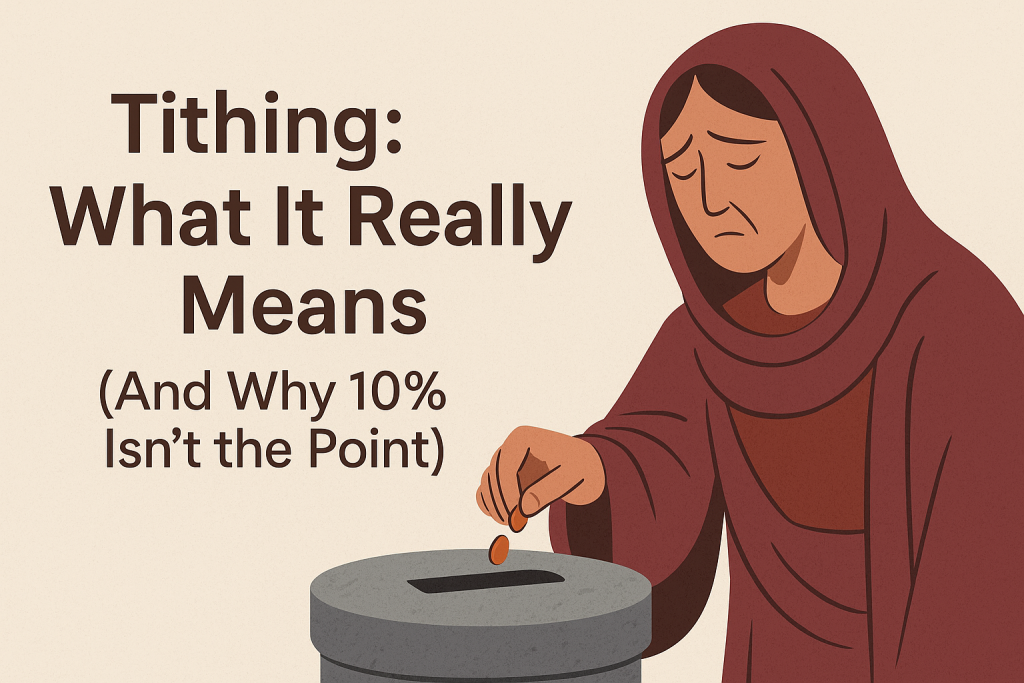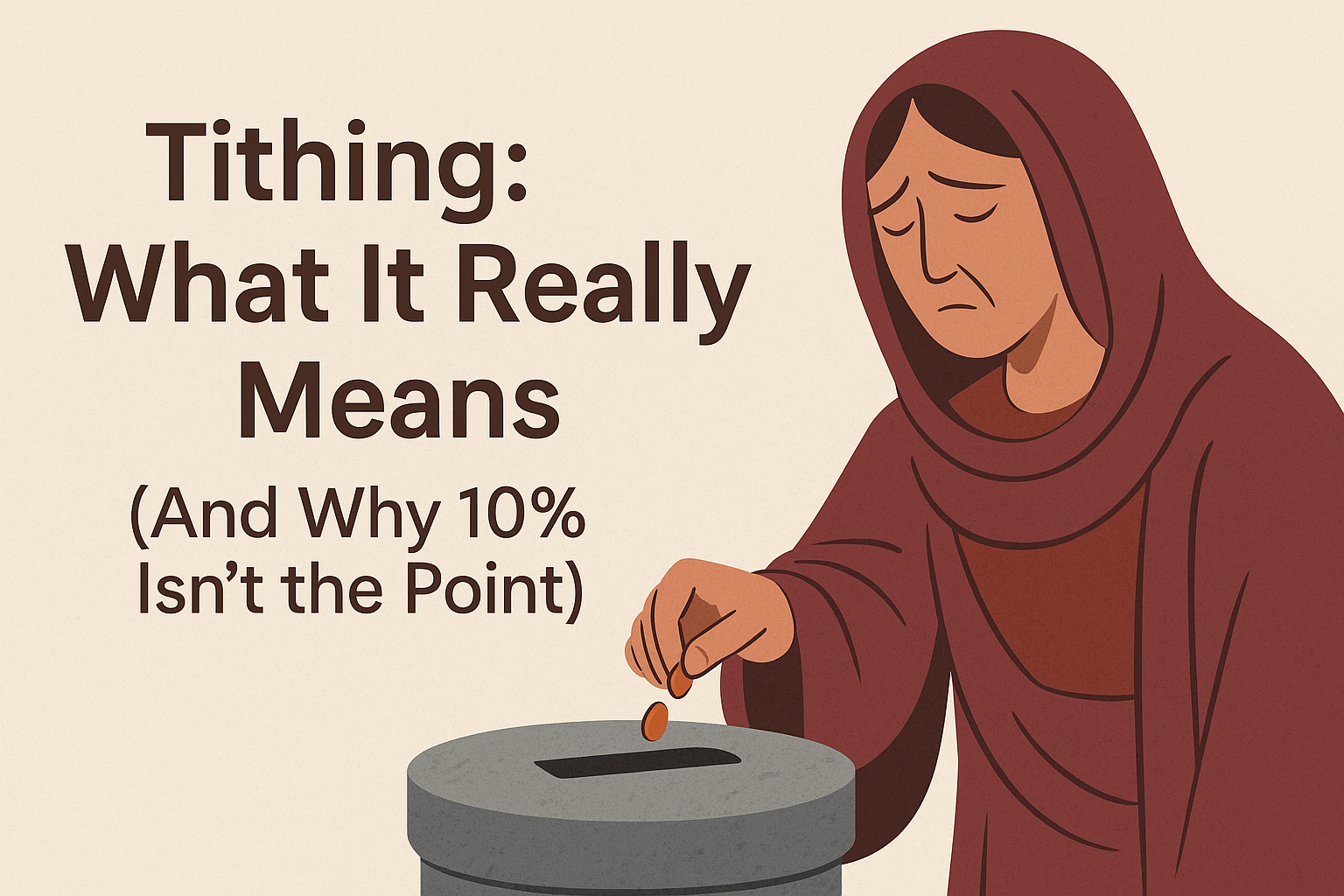
What Is Tithing? A Christian Guide to Giving Without Guilt
As a Christian, I have thought long and hard about giving and what I see going on in many churches and congregations today. I have had quite the spiritual journey, and thankfully, over the years, I have learned to study the bible and rely on it for answers.
If you’ve ever wondered what tithing really means for Christians today, you’re not alone. Many people grow up hearing that they must give 10% of their income to the church—or else they’re robbing God or blocking blessings.
But the truth about tithing in the Bible might surprise you.
Let’s dig in and unpack what tithing is, what it isn’t, and how Christians can approach giving in a healthy, grace-filled way that is biblical.
Tithing in the Bible: What Did It Mean?
In the Old Testament, tithing was part of the law given to ancient Israel. People were expected to give 10% of their crops, livestock, and produce to support the Levites (Numbers 18:21), who were the priestly tribe.
There were also additional offerings throughout the year, so the total giving was closer to 23–30% annually, not just 10%.
But here’s the key: tithing was never about money in a modern salary-based economy. It was a system of community support, worship, and trust in God’s provision. Note the community support, something that is lacking in many congregations of today.
Does the New Testament Command Tithing?
No. There’s no New Testament verse commanding Christians to give 10%. Not one.
Instead, Jesus and the early church emphasized generosity from the heart, not legalism. The facts were Christ drove the money changers from the church.
The Apostle Paul writes:
“Each of you should give what you have decided in your heart to give, not reluctantly or under compulsion, for God loves a cheerful giver.”
– 2 Corinthians 9:7
Christian giving is about love, not law. The Old Testament laws changed with the coming of Christ. Christ taught to give all we can with the right heart.
Christian Giving vs. the Prosperity Gospel
Here’s where it gets important: many churches today promote what’s called the prosperity gospel. It teaches that if you give (especially 10% or more), God will bless you financially. I have heard sermon after sermon on this very topic.
Let’s be clear: this is not biblical. I have left churches because they taught this legalistic approach.
Jesus never promised wealth. He promised peace, presence, and purpose — even in suffering. Giving is an act of worship, not a business transaction.
God is not a vending machine. You don’t insert a tithe and get riches in return.
In a church that teaches a prosperity gospel, please look at where the money is going. Is it spent on building the community or the leadership? Are the widowed, the poor, and the disabled welcomed and looked after?
So… Do Christians Have to Give 10%?
You can — but you don’t have to.
Some people can give 10% joyfully. Others give 1%, or serve with time and talent instead of money. What matters is that your giving is:
- Intentional
- Joyful
- Sacrificial (but sustainable)
- In response to God’s love, not guilt
There is no “one-size-fits-all” giving rule under grace. Christ taught that our heart matters most.
5 Simple Principles for Christian Giving
- Start where you are — and grow over time.
- Give regularly — even if it’s a small amount. Make it part of your budget.
- Pray before giving — ask God to guide your heart.
- Support what aligns with your faith — church, missions, justice, and local needs.
- Remember your giving is worship, not a duty or performance.
Final Thoughts: Give With Grace, Not Guilt
You are not more spiritual if you give 10%, and you’re not less spiritual if you can’t.
God looks at your heart, not your bank statement. You give because you’ve already received the greatest gift: Jesus Himself.
So if you’ve ever asked, “What is tithing, really?” — here’s your answer: it’s not about 10%. It’s about love, generosity, and freedom in Christ. Start where you can, pray about it, and give in ways that are sustainable and sacrificial for you.


Leave a Reply